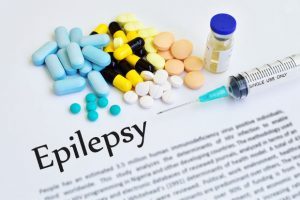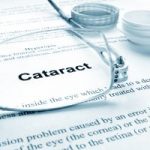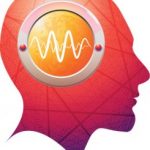 March 26 is Purple Day for Epilepsy, a day where people come together to raise awareness. To help increase awareness of this important condition, we have compiled a list of relevant topics dealing with issues such as diabetes, cataracts, and their relation to epilepsy. Over the past eight years, purple day has become a global event.
March 26 is Purple Day for Epilepsy, a day where people come together to raise awareness. To help increase awareness of this important condition, we have compiled a list of relevant topics dealing with issues such as diabetes, cataracts, and their relation to epilepsy. Over the past eight years, purple day has become a global event.
Ketogenic diet safe and effective for those with severe epilepsy
A ketogenic diet based on high-fat and low-carbohydrate consumption has been found to help patients who suffer from super refractory status epilepticus (SRSE)—a severe and often fatal form of epilepsy—in a new study from Johns Hopkins and their colleagues. SRSE is characterized by prolonged and severe seizures that require medically-induced comas in order to prevent additional damage to the brain and body.
Advertisement
The ketogenic diet was found to be effective in treating approximately one-third of adult patients with epilepsy who are resistant to anti-seizure medications, and researchers set out to determine if this held true in the most severe cases as well. Continue reading…
 Diabetes, epilepsy, and asthma may increase risk of suicide and self-harm: Study
Diabetes, epilepsy, and asthma may increase risk of suicide and self-harm: Study
Diabetes, epilepsy, and asthma may increase the risk of suicide and self-harm. For the study, the researchers compared different psychiatric and physical disorders in England. Along with diabetes, epilepsy, and asthma, other physical illnesses associated with a higher risk of suicide and self-harm including a migraine, psoriasis, eczema, and inflammatory poly arthropathies.
Authors Dr. Arvind Singhal and Dr. Jack Ross said, “It is important for physicians, general practitioners, and mental health workers to be aware of the physical disorders that are associated with an increased risk of self-harm so that at-risk individuals may be better identified and can be monitored for any psychiatric symptoms and mental distress.” Continue reading…
 Cataracts, epilepsy, and antidepressant use linked to glutamate receptor proteins in eyes: Study
Cataracts, epilepsy, and antidepressant use linked to glutamate receptor proteins in eyes: Study
Cataracts, epilepsy, and antidepressant use linked to glutamate receptor proteins in the eyes. Corresponding author Peter Frederikse said, “Recent studies identified associations between increased cataracts and epilepsy, and showed increased cataract prevalence with use of antiepileptic drugs as well as some common antidepressants. One common theme linking these observations is that our research showed the most prevalent receptor for the major neurotransmitter in the brain is also present in the lens.”
The researchers found that glutamate receptor proteins – specifically GluA2 subunit – are expressed in the lens and appear to be regulated in a similar fashion in the brain. In the nervous system, GluA receptor proteins promote memory formation and mood regulation and play a role in the epilepsy pathogenesis. Continue reading…
 Epilepsy patients sleeping on stomach face sudden death risk: Study
Epilepsy patients sleeping on stomach face sudden death risk: Study
Epilepsy patients who sleep on stomach face sudden death risk similar to SIDS (sudden infant death risk), according to research. Study author Dr. James Tao said, “Sudden unexpected death is the main cause of death in uncontrolled epilepsy and usually occurs unwitnessed during sleep.” Among epileptics, the risk of death while asleep is highest among patients with tonic-clonic seizures.
Advertisement
The researchers reviewed 25 studies, which included 253 sudden deaths. Body position during sleep was recorded. The researchers found that 73 percent of sudden deaths occurred in individuals sleeping on their stomach, and the remaining 27 percent accounted for other sleep positions. Continue reading…
 Epilepsy and music: How the brain reacts
Epilepsy and music: How the brain reacts
It has been presented that the brains of people with epilepsy react differently to music in comparison to those without the disorder. The findings may prompt new therapies to help aid in epilepsy treatment. The findings were presented at the American Psychological Association’s 123rd Annual Convention.
Epilepsy can affect anyone of any age and is the fourth most common neurological disorder. Epilepsy is characterized by spontaneous seizures and can be caused by trauma to the head. Continue reading…
